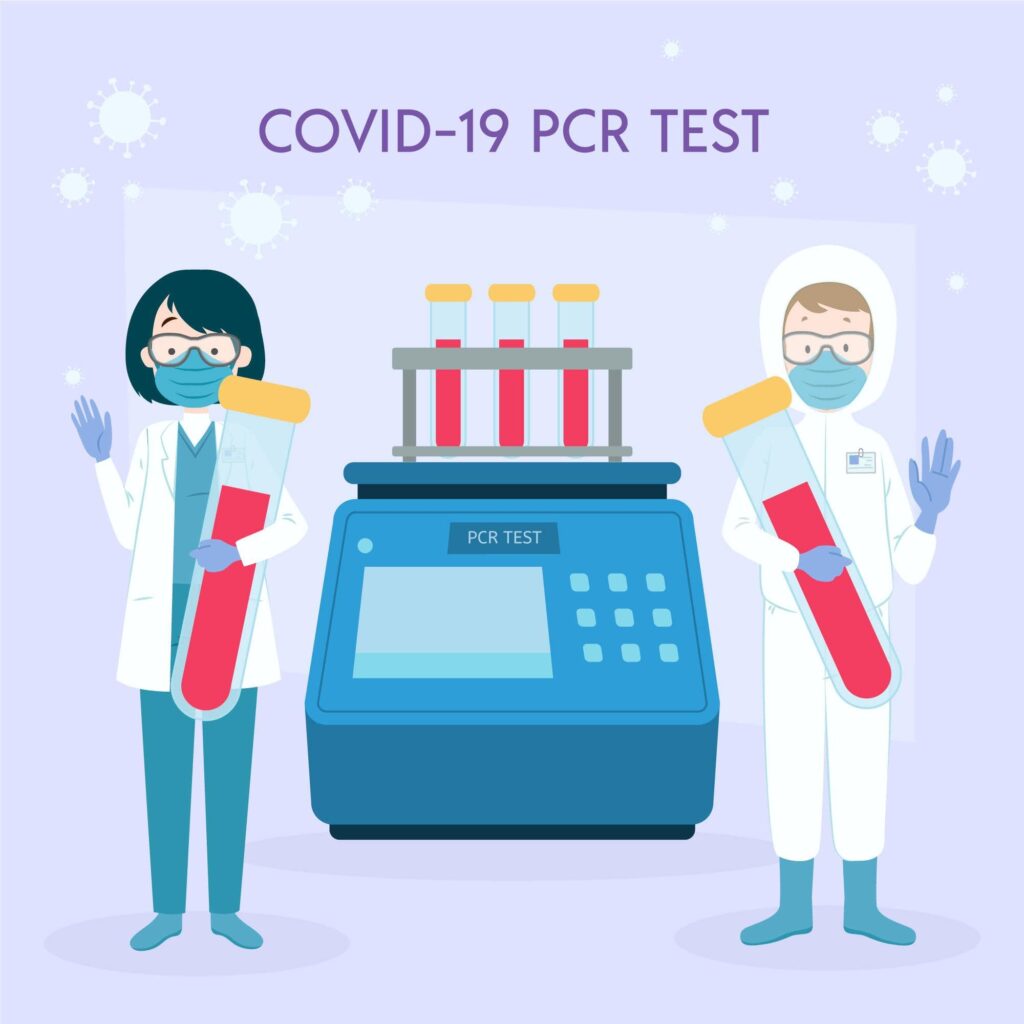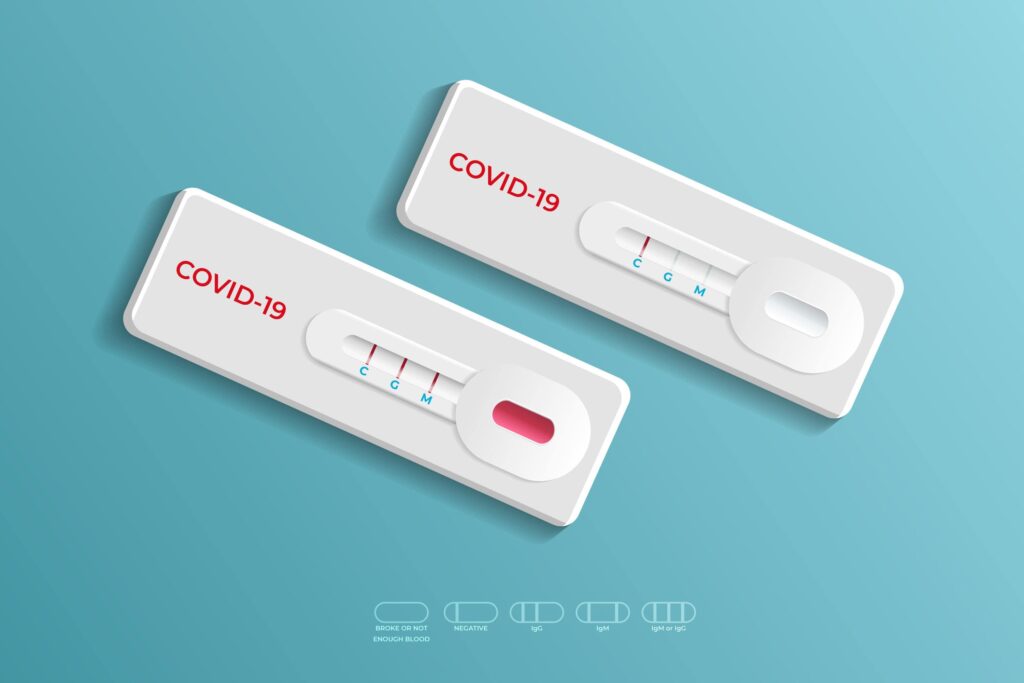Since the beginning of the COVID-19 pandemic, testing has played a crucial role in identifying and containing the virus. With the development of new variants and the desire to return to normalcy, the demand for COVID-19 testing remains high. One of the critical decisions individuals face when seeking a COVID-19 test is choosing between the Polymerase Chain Reaction (PCR) test and the Rapid Test for Covid-19, also known as the Rapid Antigen Test. Each test has its strengths and weaknesses, and understanding the differences between them can help individuals make informed decisions about which test is more appropriate for their specific situation.
PCR Test

The Polymerase Chain Reaction (PCR) test is considered the gold standard for COVID-19 testing and is typically performed in a laboratory or healthcare setting. During the test, a healthcare professional or the individual collects a sample of cells from the nose, mouth, or throat using a swab. The collected sample is then treated with an enzyme solution and undergoes extreme amplification, allowing the test to identify the exact genetic materials of the virus, including different variants or strains. The PCR covid test is highly reliable, often approaching 100% accuracy in detecting the virus.
Pros of PCR Test:
- Highly accurate: PCR tests are known for their high accuracy in detecting the presence of the virus.
- Can detect the virus in asymptomatic people: PCR tests are effective in identifying COVID-19 even in individuals who do not show symptoms.
- Differentiates between virus variants: PCR tests can distinguish between different variants or strains of the virus.
Cons of PCR Test:
- Sample must be sent to a lab: The PCR test requires sending the collected sample to a lab for analysis, which may result in longer turnaround times.
- Lengthy turnaround time: The average turnaround time for PCR test results is typically two to three days after the lab receives the sample.
- Expensive: PCR tests are generally more expensive than rapid tests.
- Higher false positive rate: Although PCR tests are highly accurate, they may occasionally produce false-positive results.
Rapid Test (Rapid Antigen Test):

The Rapid Antigen Test, or rapid test for Covid-19, looks for pieces of viral proteins from the SARS-CoV-2 virus (antigens) rather than genetic material. These tests are quick and can produce results in as little as 10 to 30 minutes. The rapid test is often used to detect other viruses that cause illnesses like the flu, respiratory syncytial virus (RSV), and sexually transmitted infections (STIs).
Pros of Rapid Test:
- Home-based and fast results: Rapid tests are designed for home use and can provide results in a short period, making them convenient for immediate testing needs.
- Cheaper than PCR tests: Rapid tests are generally more affordable than PCR tests, making them accessible to a wider population.
- Good for repeated testing: Rapid tests can be used for frequent or repeated testing due to their ease of use.
Cons of Rapid Test:
- User error can affect results: The accuracy of rapid tests for Covid-19 may be impacted by incorrect sample collection or testing procedures.
- Higher false-negative rate: Rapid tests may have a higher false-negative rate, especially in asymptomatic individuals or those with low viral loads.
- Doesn’t work well if you don’t have symptoms: Rapid tests are less effective in detecting COVID-19 in individuals who are asymptomatic.
Which Test Should You Use?
The choice between a PCR test and a rapid test for Covid-19 depends on the individual’s situation and the purpose of testing. Rapid tests are suitable for individuals who need immediate results, have symptoms, and want a quick initial assessment. For example, if you are feeling unwell and want to know if it could be COVID-19, a rapid test can provide a rapid answer, allowing you to take appropriate precautions like self-isolation.
On the other hand, if you need the most accurate test or you are still experiencing symptoms despite negative rapid test results, PCR testing is the better choice. PCR tests are recommended for people who are symptomatic and need testing before medical procedures, those who were exposed to someone with COVID-19, or those who are in high-risk environments.
In summary, both PCR tests and rapid tests have their strengths and weaknesses. The decision between the two should be based on individual circumstances, testing needs, and the level of accuracy required. If you have any doubts or questions about COVID-19 testing, symptoms, or treatment, it’s best to consult your healthcare provider or a trusted medical professional for guidance. Remember that regardless of the type of test you take, if you receive a positive result, it’s essential to follow isolation guidelines to prevent further spread of the virus.

